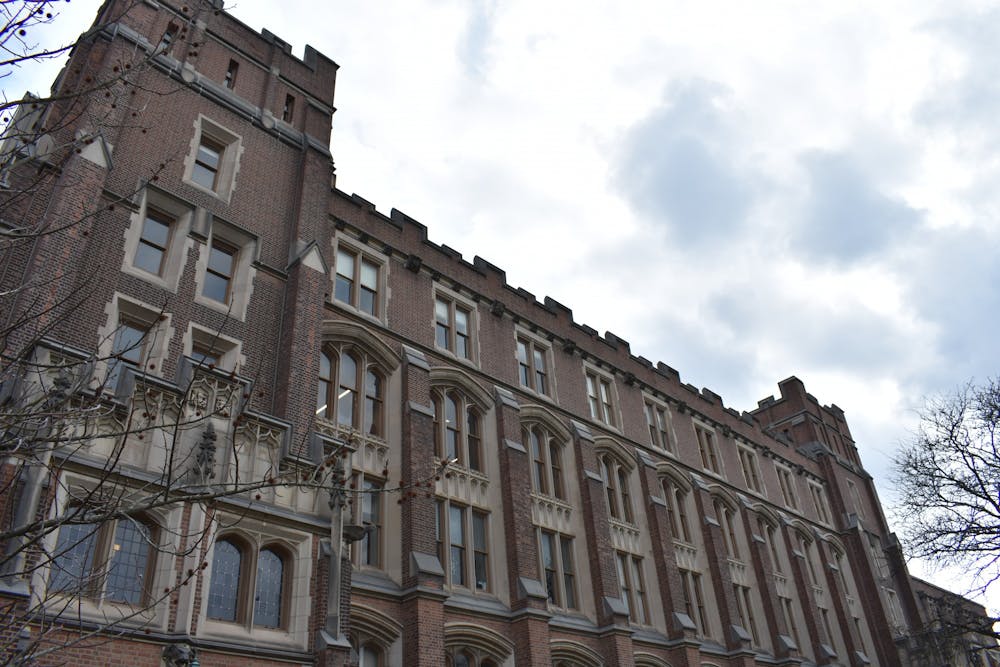The climate crisis is the most pressing issue of the 21st century. It is shaped by, and actively shapes, every aspect of human existence. There is no field, no method of study that is insulated from its chaotic effects. In recognition of the extent to which these changes affect all of us, the University should amend its current 10 general education requirement categories to include an eleventh: one that prompts students to engage with the climate crisis and the future of life on this planet.
There is no shortage of emergencies that we currently face. Festering socioeconomic inequality plagues our local and global landscapes. Violent conflicts rage across time and space. Upon coming to Princeton, we are told that it is our job to act in “the service of humanity.” Indeed, the current general education requirements prompt us to examine the personal, societal, and theoretical layers underpinning these crises. We study “culture and difference” (CD) and engage in “historical analysis” (HA) to see the patterns of human interaction that produce both discord and conflict, beneficence, and inequity. We grapple with questions of “ethical thought and moral values” (EM) and in doing so, generate a clearer picture of our individual and collective responsibilities to alleviate the harms we see around us. These requirements guarantee that each student receives a holistic education. For instance, all of us — the humanities majors grudgingly — must study the scientific basics (QCR, SEN, SEL) to round out our education.
Yet the climate crisis is so singular because it extends across these different domains of knowledge and often exists at their intersections. Global warming is a scientific issue and requires knowledge of science. But the conflicts it fuels straddle history, geography, and culture. The harm it replicates and produces is driven by structural inequity. Its cultural representations are in the realm of the literary, visual, and political. The traditional boundaries of these fields collapse in the face of the greatest challenge humanity has ever faced. Every student will have to deal, in one way or another, with this destruction and its aftermath. The University should aim to produce policymakers and artists, diplomats and computer scientists who are knowledgeable about how their fields intersect with the climate crisis.
To this end, an eleventh general education requirement — the Anthropocene and Planetary Future (APF) — should be implemented to require that a student take a class that deals in some meaningful way with the climate crisis. The title of this requirement refers to the intersection of the anthropocene (the geological age of human domination of earth) and our future as a species and planet — balancing humans and their harmful behavior and the environment that sustains them. The class may fall into their major. EEB majors, for instance, may automatically complete the requirement based on the requisite courses for their major. English majors, however, might take a class that deals with the climate crisis more obliquely. For instance, the department might a course on depictions of natural disasters and plague in fiction. Students may also be encouraged to push the boundaries of their course of study by taking a course far outside of their discipline (e.g., a class on coral reef depletion for a history major) — if they choose to do so, this course should be counted toward the additional general education requirement it may fulfill (e.g., SEN/SEL) to avoid undue academic burden, much like how the CD requirement can be fulfilled concurrently with another distribution.
I would imagine that the vast majority of Princeton students understand the ever-present danger and destruction of the climate crisis. Most have experienced it first-hand, whether through worsening natural disasters or environmental racism. The purpose of the requirement is not to raise awareness but to prompt sustained and real engagement with the issue of the climate crisis — to understand more deeply and form more perspectives, to gain the theoretical and practical knowledge that can be applied to the world around us. Importantly, such a requirement might also prompt students to make connections between their disciplines and interests with the climate crisis, thus helping to shape advocacy that they should undertake in the future.
The road ahead on the climate crisis is not a clear or easy one. Fundamentally, it will require solutions rooted in different fields and methods of thought. Such a change to a relatively small (though influential) university’s academic requirements may seem like a small step — but it is one that will, hopefully, guide others in “the service of humanity.”
Contributing Columnist Leo Yu is a first-year student from New York intending to major in SPIA. He can be reached at ly3722@princeton.edu.








